BMW X7 vs Toyota Yaris – Differences & prices compared
Compare performance, boot space, consumption and price in one view.
Find out now: which car is the better choice for you – BMW X7 or Toyota Yaris?
The BMW X7 (SUV) comes with a Diesel MHEV, Petrol MHEV or Petrol engine and Automatic transmission. In comparison, the Toyota Yaris (Hatchback) features a Full Hybrid or Petrol engine with Automatic or Manuel transmission.
When it comes to boot capacity, the BMW X7 offers 750 L, while the Toyota Yaris provides 286 L – depending on how much space you need. If you’re looking for more power, decide whether the 530 HP of the BMW X7 or the 280 HP of the Toyota Yaris suits your needs better.
In terms of consumption, the values are 8 L per 100 km for the BMW X7, and 3.80 L for the Toyota Yaris.
Price-wise, the BMW X7 starts at 90500 £, while the Toyota Yaris is available from 21900 £. Compare all the details and find out which model fits your lifestyle best!
BMW X7
The BMW X7 stands as a remarkable testament to luxury and performance within the SUV market. Its design seamlessly blends elegance with a robust presence, ensuring a commanding stance on the road. Inside, it offers a lavish interior adorned with premium materials and cutting-edge technology to enhance the driving experience.
details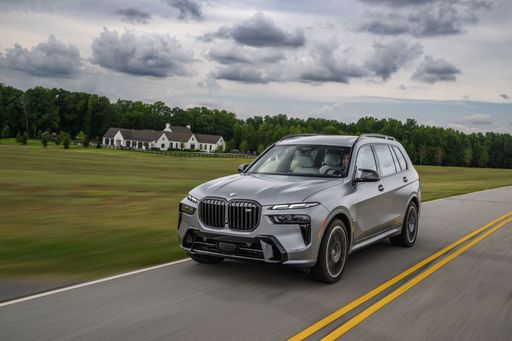 @ press.bmwgroup.com
@ press.bmwgroup.com
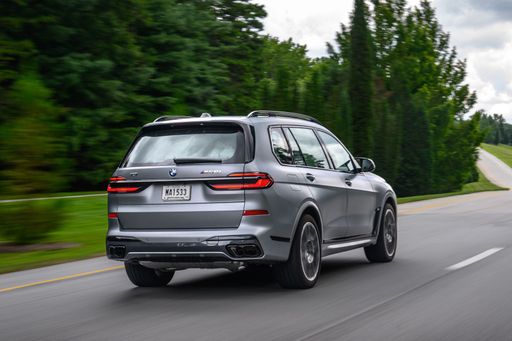 @ press.bmwgroup.com
@ press.bmwgroup.com
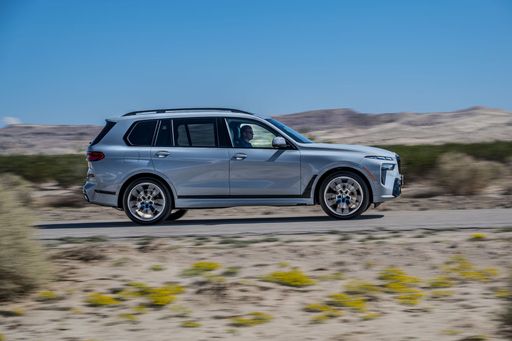 @ press.bmwgroup.com
@ press.bmwgroup.com
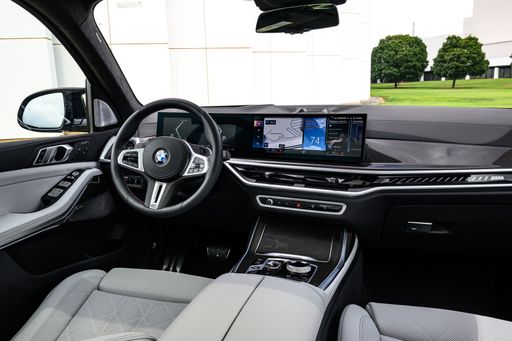 @ press.bmwgroup.com
@ press.bmwgroup.com
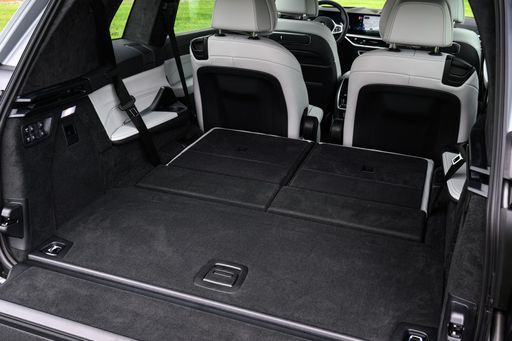 @ press.bmwgroup.com
@ press.bmwgroup.com
Toyota Yaris
The Toyota Yaris exudes a charming blend of practicality and style, making it an appealing choice for urban drivers. Its compact design allows for easy manoeuvrability in crowded city streets, while the interior offers a surprisingly spacious and comfortable environment. With a focus on fuel efficiency and reliability, the Yaris remains a popular option for those seeking a balance between performance and economy.
details @ Toyota
@ Toyota
 @ Toyota
@ Toyota

|

|
|
|
|
Costs and Consumption |
|
|---|---|
|
Price
90500 - 117500 £
|
Price
21900 - 45000 £
|
|
Consumption L/100km
8 - 12.1 L
|
Consumption L/100km
3.8 - 9.5 L
|
|
Consumption kWh/100km
-
|
Consumption kWh/100km
-
|
|
Electric Range
-
|
Electric Range
-
|
|
Battery Capacity
-
|
Battery Capacity
-
|
|
co2
210 - 274 g/km
|
co2
87 - 215 g/km
|
|
Fuel tank capacity
80 - 83 L
|
Fuel tank capacity
36 - 50 L
|
Dimensions and Body |
|
|---|---|
|
Body Type
SUV
|
Body Type
Hatchback
|
|
Seats
7
|
Seats
4 - 5
|
|
Doors
5
|
Doors
3 - 5
|
|
Curb weight
2490 - 2675 kg
|
Curb weight
1090 - 1356 kg
|
|
Trunk capacity
750 L
|
Trunk capacity
141 - 286 L
|
|
Length
5181 mm
|
Length
3940 - 3995 mm
|
|
Width
2000 mm
|
Width
1745 - 1805 mm
|
|
Height
1835 mm
|
Height
1455 - 1500 mm
|
|
Payload
680 - 760 kg
|
Payload
289 - 525 kg
|
Engine and Performance |
|
|---|---|
|
Engine Type
Diesel MHEV, Petrol MHEV, Petrol
|
Engine Type
Full Hybrid, Petrol
|
|
Transmission
Automatic
|
Transmission
Automatic, Manuel
|
|
Transmission Detail
Automatic Gearbox
|
Transmission Detail
Manual Gearbox, Automatic Gearbox, CVT
|
|
Drive Type
All-Wheel Drive
|
Drive Type
Front-Wheel Drive, All-Wheel Drive
|
|
Power HP
352 - 530 HP
|
Power HP
116 - 280 HP
|
|
Acceleration 0-100km/h
4.7 - 5.9 s
|
Acceleration 0-100km/h
5.5 - 9.7 s
|
|
Max Speed
245 - 250 km/h
|
Max Speed
175 - 230 km/h
|
|
Torque
520 - 750 Nm
|
Torque
390 Nm
|
|
Number of Cylinders
6 - 8
|
Number of Cylinders
3
|
|
Power kW
259 - 390 kW
|
Power kW
85 - 206 kW
|
|
Engine capacity
2993 - 4395 cm3
|
Engine capacity
1490 - 1618 cm3
|
General |
|
|---|---|
|
Model Year
2023
|
Model Year
2024 - 2025
|
|
CO2 Efficiency Class
G
|
CO2 Efficiency Class
B, G
|
|
Brand
BMW
|
Brand
Toyota
|
BMW X7
Introduction to the BMW X7: A Luxurious Powerhouse
The BMW X7 stands as a testament to BMW's dedication to luxury, performance, and state-of-the-art technology. As BMW's flagship SUV, the X7 effortlessly combines opulent features with innovative engineering, ensuring a driving experience that is both exhilarating and refined.
Engine and Performance: A Blend of Power and Efficiency
Under the bonnet, the BMW X7 offers a variety of powertrains to suit different driving preferences. From the robust diesel mild-hybrid to the powerful petrol engine options, each boasts BMW's hallmark of efficiency without compromising on performance. With horsepower ranging from 352 to a staggering 530 PS, and acceleration from 0-100 km/h in just 4.7 seconds, the X7 delivers a thrilling yet smooth ride.
The advanced all-wheel-drive system ensures confidence-inspiring handling, while the state-of-the-art automatic transmission provides seamless gear changes, enhancing both city and highway driving experiences.
Design and Dimensions: Majestic and Commanding
The X7 makes a commanding statement with its expansive dimensions. Measuring 5181 mm in length and 2000 mm in width, BMW has designed this SUV not only to impress but also to offer unparalleled space within. The interior accommodates seven seats, providing generous comfort for every passenger. Coupled with a striking exterior design, the X7 is a blend of elegance and strength.
Technological Innovations: Ahead of Its Time
BMW's commitment to innovation is evident in every aspect of the X7. The SUV is equipped with cutting-edge features such as the M Sportpaket Pro Steptronic Sport, ensuring an engaging driving experience. The integration of state-of-the-art safety and driver-assistance systems further enhances on-road safety, making each journey as secure as it is enjoyable.
Inside, the high-quality infotainment system ensures passengers are connected and entertained, thanks to the intuitive control interfaces and connectivity options. Whether navigating city streets or cruising long distances, the X7's technology facilitates a seamless experience.
Environmental Considerations and Efficiency
Despite its powerful performance, the BMW X7 remains conscious of its environmental impact. Equipped with mild-hybrid technology, it achieves a balanced fuel consumption, with efficiency ratings between 7.9 and 12.1 L/100km. This demonstrates BMW's commitment to reducing emissions while providing a dynamic driving experience.
Conclusion: A Testament to Excellence
In conclusion, the BMW X7 is more than just an SUV; it is a symbol of luxury, performance, and technological advancement. Whether for the daily commute or cross-country adventures, the X7 stands prepared to exceed expectations, offering a driving experience marked by elegance and engineering prowess. For those seeking a vehicle that encapsulates the best of BMW, the X7 is an aspirational choice that delivers on all fronts.
Toyota Yaris
Introducing the Next-Gen Toyota Yaris: A Blend of Innovation and Technology
The Toyota Yaris has long been lauded for its efficiency, reliability, and practicality. As we venture into the 2024 model year, Toyota has upped the ante with the latest versions of this popular hatchback, melding cutting-edge technology with eco-conscious design. Here’s an in-depth look at what makes the current Yaris line-up stand out from the crowd.
Efficient Powertrains: Hybrid and Beyond
Spearheading the technological innovation in the Yaris range is the introduction of various hybrid models. The Yaris offers a 1.5-litre full-hybrid engine, marrying a petrol engine with an electric motor to produce between 116 and 130 PS. This power blend is controlled via a sophisticated CVT-gearbox, optimizing both performance and fuel efficiency, with consumption figures ranging from an impressive 3.8 to 4.2 litres per 100 km.
For those seeking pure performance, the GR Yaris variants provide a turbocharged 1.6-litre engine capable of producing 280 PS. This power is delivered via a choice of manual or automatic transmission, giving drivers the tactile involvement or convenience they desire.
Design that Fulfils and Inspires
The Yaris hasn't forgotten its roots as a compact, city-friendly hatchback, measuring between 3,940 and 3,995 mm in length. With its bold front grille, sleek lines, and a choice of striking colours, it's a car that turns heads while remaining perfectly suited for urban environments.
The interior is equally impressive, designed with a focus on driver convenience and comfort. Depending on the variant, Yaris can offer generous cargo space of up to 286 litres, making it a perfect companion for everyday tasks or weekend escapes.
Technological Integration: The Smart Choice
Toyota's approach goes beyond just improving engine technology; the Yaris is packed with innovative features aimed at enhancing the driving experience. It boasts a suite of advanced safety systems such as lane departure alert, pre-collision system, and adaptive cruise control, ensuring peace of mind on the road.
The infotainment system in the Yaris is designed to keep you connected, offering seamless smartphone integration, a user-friendly interface, and an intuitive navigation system, ensuring that you're always informed and entertained.
The Cost of Innovation
Owning a Yaris is not just about impressive technology; it's also about making economic sense. With a price range between €25,500 and €49,990, and monthly costs spanning from €748 to €1,513, it offers a broad spectrum to suit different budget needs.
Concerned about emissions? You can rest easy knowing that the Yaris boasts a CO2 efficiency class ranging from B to G, thanks to its low emissions output of between 87 to 215 g/km.
Conclusion: The Toyota Yaris Drives the Future
The Toyota Yaris continues to be a strong contender in the compact car segment, pushing boundaries with its innovative full-hybrid systems and performance-oriented GR models. It's a remarkable blend of design, technology, and economy, ensuring it remains a top choice for drivers who demand more from their hatchbacks.
Whether you're seeking the efficiency of a hybrid or the thrill of the GR Yaris, there's a model tailored to your unique driving needs in Toyota's latest Yaris lineup.
Which drive types are available for the BMW X7?
Available as All-Wheel Drive.
The prices and data displayed are estimates based on German list prices and may vary by country. This information is not legally binding.
